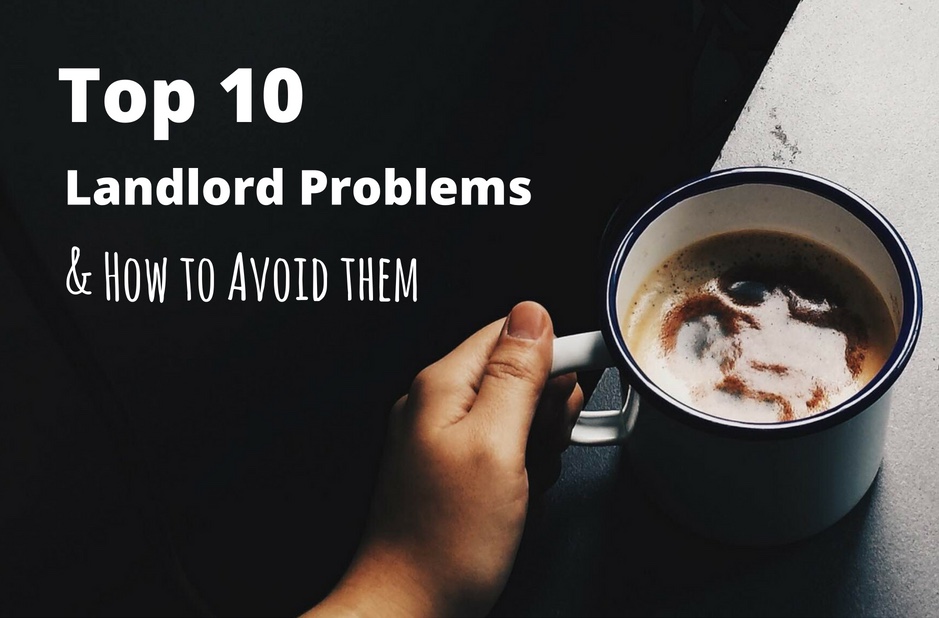Rental Income is a great way to make money, but being a landlord or property manager sometimes bring headaches no matter how experienced you are with rental properties.
If you can afford to, outsource the management of your rental properties so that someone else can deal with the problems that come with it. But if you are just starting out with a few properties, chances are, you’ll have to DIY your way.
Here are some of the most common issues landlords face. Knowing these will help you prepare, avoid or solve problems better.
1. Problematic Tenants
There are many types of problematic tenants such as delinquent payers, constant complainers, dirty hoarders and many more. So don’t be in a rush to lease out your property to just anyone. Make sure you interview and screen your would-be tenants properly. I usually ask them to fill out a Tenant Application Form to get basic information such as their occupation, nationality and family background. Then I verify or do a quick background check if I can using social media.
2. Collection Logistics
If your tenant has a checking account, requiring post-dated checks during contract-signing will save you a lot of time and effort. However, not all people have checking accounts, especially short-staying foreigners or low-income tenants. If you can, ask for more than 1-2 months of advance rental fees. Set up a bank deposit account or other payment systems that your tenant can easily access. Charge penalties for late payments and be sure to document and send out written notices for late payments.
3. Utility Bills Issues
As a landlord, unpaid utilities may be an issue when the tenant leaves. If the electricity or water utility is under the account of the tenant, you may have additional costs to transfer it to another name as well. Many landlords are left having to settle the account. That is why the Security Deposit is essential as it serves as your safety net for unpaid bills. Be sure that all utilities are cleared before releasing the Security Deposit refund.
4. Property Damage
Properties inevitably do get damaged. Some through normal wear and tear. Some through natural calamities or pests. Some by reckless tenants. Be sure to add a clause on who should handle repairs. Expect to shell out some maintenance and repair costs every time a tenant leaves. If considerable damage is done due to tenant’s negligence, you can deduct the cost from the security deposit. I prefer investing in smaller units because the cost for maintaining these are lower compared to luxurious and large homes.
5. Illegal or Immoral Activity
Although your contract states that their should be no illegal or immoral activity, you cannot really monitor and control all the actions of your tenant. So be sure to screen your tenants well. Inform them of any building rules for strict implementation. And make sure to add a “no liability clause” in favor of the landlord (lessor) in the contract.
6. Appliance Break down
If you are leasing out fully-furnished rental properties, make sure to define who will pay for the maintenance of appliances and cost of repairs should the appliance break down. I usually tell my tenants to have the air-conditioners cleaned every 3-6 months and I give them the contact details of the service provider. If you have a responsible tenant, they will take care of this. If not, consider creating a reminder system. Maintenance cleaning helps prevent appliance breakdown.
7. Sudden Rent Termination
Sometimes, due to unforeseen circumstances, the tenant has to cut short their stay and terminate the contract. This will cause you to have opportunity loss especially if the tenant leaves during off season. So include in the contract fees for sudden rent termination. Normally, the security deposit will be forfeited during such cases. But it is really up to the landlord to decide as long as things are stated clearly in the contract.
8. Tenant Injury
Sometimes, accidents can happen in your property either to your tenant, his family members, visitors or even strangers. Make sure that your property has proper building compliance. Be sure to include a “no liability clause” in favor of the landlord (lessor) in your contract.
9. Fire and Other Hazards
Be sure that your property has proper fire exits and consider getting fire insurance. My husband and I once wanted to buy a below-market value property but decided against it when we noticed that it was a possible fire-trap. Even if our usual contract has a “no liability clause” that will clear us of any responsibility, the thought of the danger that can happen horrified us. So we passed up on the property.
10. Pet Problems
Pets are lovely creatures but a real pain for landlords. They can damage your property, mess it up or leave stains and bad odor. Even cute tiny puppies go through the teething stage which can wreak havoc to your hardwood floors and furniture. I tend to go for a no pet policy. But for slow-moving properties, I can be flexible. Adjusting the Security Deposit can help you cover damages caused by pets.
At one point in your landlord life, you are bound to experience a few of these problems. But if you get a good tenant and you maintain and fix up your property in between tenants, you will have lesser headaches. So make sure to screen your tenants well, prepare a well-written contract and set up contingencies. The better prepared you are as a landlord, the lesser the stress.


